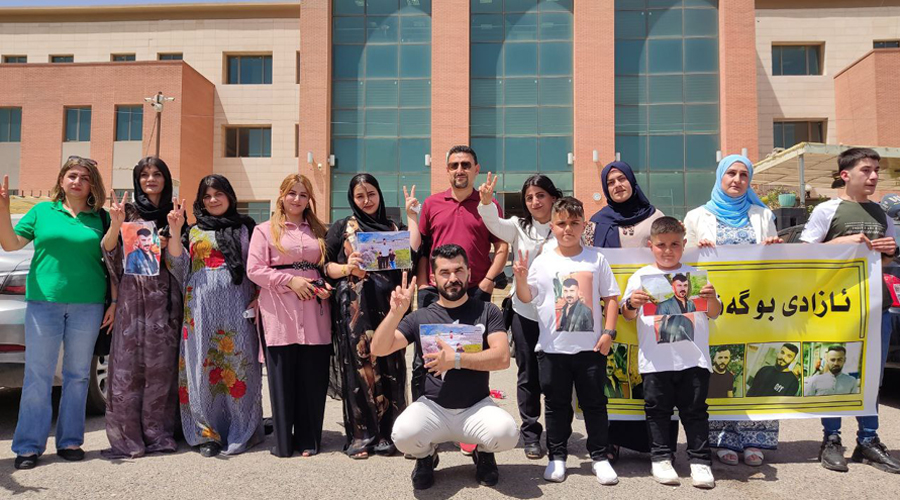The Erbil Court of the Kurdistan Region of Iraq KRI sentenced five activists from Duhok province to two years in prison on charges of causing chaos.
The court issued the decision in a hearing on Monday, May 16, under tight security measures in the courtroom where armed security forces were inside the courtroom, according to KirkukNow reporter.
The trial began at 10:30 am on Monday, May 16, 2022, but because the defense lawyers were not allowed to review the dossiers of the defendants, the judge gave them only 10 minutes to read the case, said Bashdar Hassan, a member of the volunteer teams of lawyers defending the detainees.
"There were five informants to testify against the five detainees, three of whom were secret and none of them attended the hearing, and only their statements were read," Hassan added.
There were five informants to testify against the five detainees, but none of them attended the hearing
According to the charges read out before the court's decision, the five activists through groups of Facebook Messenger and Instagram social media platforms, "incited people to demonstrate, target local officials and raid the officials’ houses and party headquarters.”
The court then sentenced each activist to two years in prison under Article 1 of Law No. 21 of 2003
The five activists are Mahmoud Naji Sadiq, who is also an activist of the Gorran (Change) Movement based in Sulaymaniyah, Nechirvan Badi Haji of the New Generation, Kuvan Tarq Jibril, an activist, Yousef Sharif Ibrahim and Amjad Yousef Mustafa, members of the Patriotic Union of Kurdistan PUK.
The court hearing was attended by a number of members of Iraqi Kurdistan parliament, representatives of civil society organizations and the United Nations UN.
"Since they have been in prison for 17 months, if they are covered by parole (three months amnesty for each year), following the confirmation of the verdict and parole sent to the judges, all must be released in 40 days,” Hassan confirmed.
Law No. 21 of 2003, which punished the five activists and a number of other activists in Badinan, is the same article that Saddam Hussein, as chairman of the Revolutionary Leadership Council, used to penalize the Kurdish Peshmerga and the opposition parties, with slight amendment by the Kurdistan Parliament.
Badinan detainees, few of them tried and freed up today, are victims of a wave of arrests carried out by the Asayish (Kurdish security forces) since June 2020 in response to a series of major protests against delay in salaries of state employees, the Kurdistan Regional Government KRG handling of the economic crisis resulting from disputes with Baghdad over oil production, export and corruption, and reached its peak under the Covid-19 pandemic.
The charges are based on Law 21 approved by parliament of Kurdistan, Iraq, in 2003 which revoked item 156 of Iraq penal code stating that "any one purposefully in any means involved in an action that harms security, stability and sovereignty Iraqi Kurdistan region's institutions and causes damage will face or short-term up to life imprisonment."
The independent commission for human rights in Kurdistan region recorded arrest of 300 people from August to October 2020 for "organization of protests and disorder mainly in Duhok northern province. More than 50 are still in prison.
The KRG has sent over 50 activists and journalists to court in 2020 and 2021 and some of the cases are still pending at court awaiting trial.






